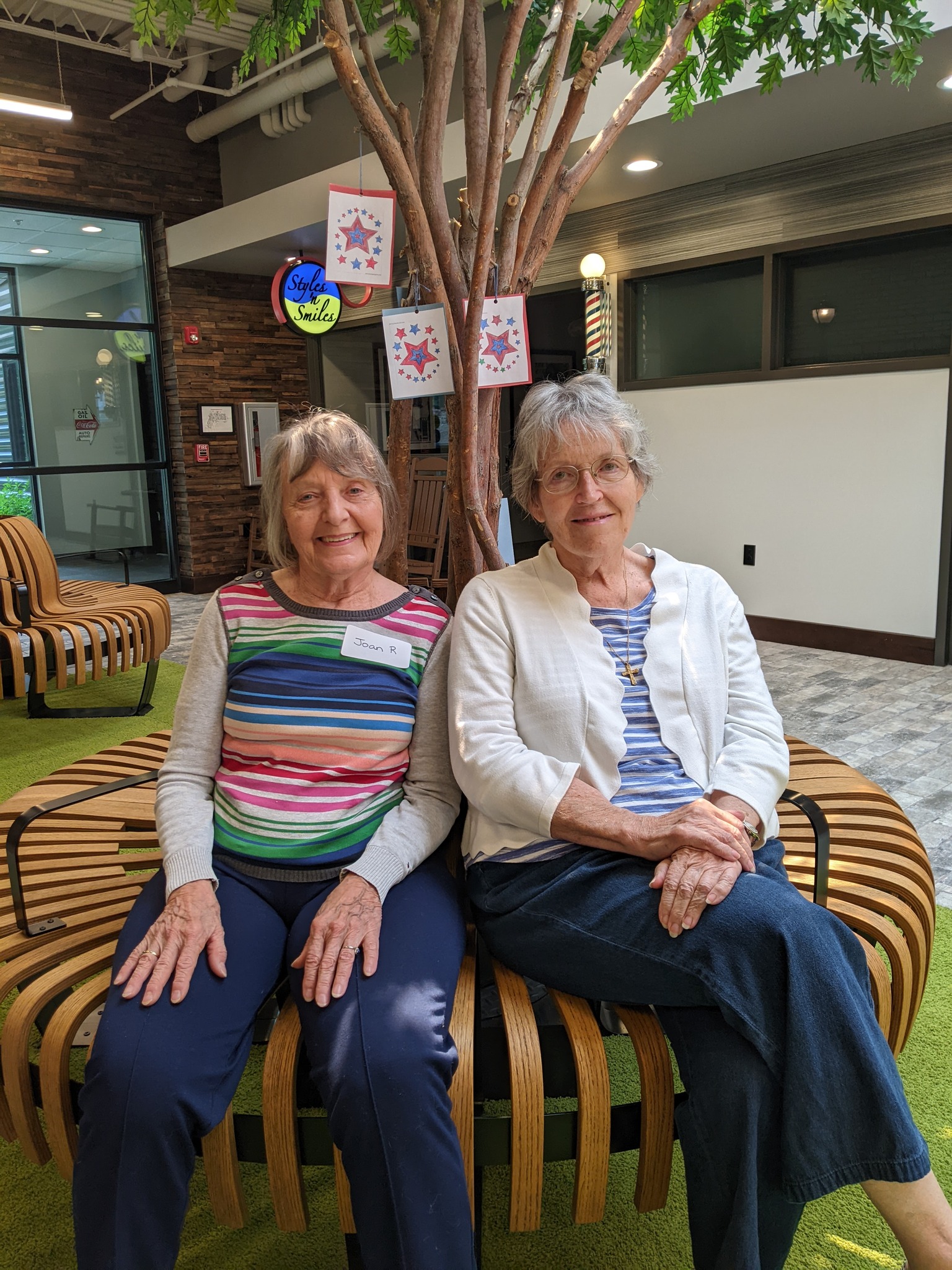Talking to someone who has dementia can be challenging at times, but when you understand what they’re going through and how to best communicate, you can have more successful conversations. Dementia is a progressive disease where nerve cells in the brain are damaged, which leads to memory loss, difficulty finding the right words to say, difficulty understanding other people, changes in mood and personality and difficulty doing day-to-day tasks. Here are some tips to keep in mind when talking to someone with dementia.
KNOW WHAT TO EXPECT
 Dementia is the umbrella term for different diseases of the brain, with Alzheimer’s disease being the most common type. Take the time to learn about how dementia progresses. This will help you understand the changes your loved one is experiencing and will give you an idea of what to expect out of conversations. For example, your loved one may have trouble recalling memories and finding the right words.
Dementia is the umbrella term for different diseases of the brain, with Alzheimer’s disease being the most common type. Take the time to learn about how dementia progresses. This will help you understand the changes your loved one is experiencing and will give you an idea of what to expect out of conversations. For example, your loved one may have trouble recalling memories and finding the right words.
AVOID DISTRACTIONS
Distractions can be overwhelming to someone with dementia. When you’re somewhere private, turn off the TV and music or at least lower the volume. If you’re in public, find the calmest and quietest space available. Distractions can cause anxiety and confusion for someone with dementia. Talking one-on-one in a quiet space is the best option.
DON’T TALK DOWN TO THEM
Your loved one will be going through changes due to dementia, but they’re still themselves and worthy of respect. Even when they have trouble understanding, don’t speak to them in a tone you would use with a child. Talk to them like the adult that they are and don’t infantilize them in conversation. That will only lead to more frustration for both of you.
BE PATIENT
Patience is key. Give your loved one time to talk. They may speak slowly or struggle to find the word they’re searching for, but give them time instead of jumping in. Though your intention will be to help, by doing so, you may actually derail their thought process. Patience and reassurance go a long way.
SPEAK CLEARLY AND USE SHORT SENTENCES
Avoid using slang and figures of speech – this can be confusing to someone with dementia. Instead, be literal, be clear and be concise. Stick to one topic at a time so your loved one can follow the conversation easier and avoid speaking in vague terms.
BE CONVERSATIONAL AND ASK SIMPLE QUESTIONS
Only asking questions makes a conversation feel more like an interrogation. When you do ask questions, aim for them to not feel like quiz questions. For example, if another family member or friend joins the conversation, don’t ask your loved one with dementia “Do you remember their name?” This can be a difficult question, and therefore frustrating, to someone with dementia. Instead, use the first name of the person in conversation to help your loved one recognize them. Even better if you or the person joining the conversation can tell a story or share a memory.
Broad questions can also be overwhelming. Give your loved one the choice between two foods or two shirts, for example, rather than just asking what they’d like to eat or wear.
 KEEP IT LIGHT
KEEP IT LIGHT
Remember that someone with dementia is losing their memory. Asking them questions about the past can be challenging for them, especially the recent past. It’s not helpful to correct them if they get details wrong about an event from the past.
To keep conversation easy, try asking questions that don’t have a right or wrong answer. You can ask them what they think about a certain topic, like the song that’s playing on the radio. This gives them a chance to share their opinion, which can help them feel good about themselves.
PAY ATTENTION TO NON-VERBAL COMMUNICATION
Non-verbal cues are always important when communicating. Your actions can be a powerful way of communicating with someone with dementia. As your loved one’s disease progresses, they may increasingly use non-verbal communication.
Make eye contact to show them that you care about them and are interested in what they’re saying. Give them time to respond, don’t make sudden jarring movements, and nod along so they will feel reassured. This can help avoid combative behaviors.
When appropriate, hold their hand or put an arm around them. Respect their personal space if they would not like to be touched.
MILTON VILLAGE CAN HELP
At Milton Village, we provide therapeutic, activities-based programming for a wide range of adults, including those with dementia.
We’re happy to help you determine if our adult day center meets the needs of your family. We offer free assessments by appointment to determine your loved one’s level of functioning as well as individual and family needs.
To learn more about who Milton Village serves and how we serve them, give us a call at 574-232-2666 or stop by and see us at 111 Sunnybrook Ct in South Bend, Indiana.
